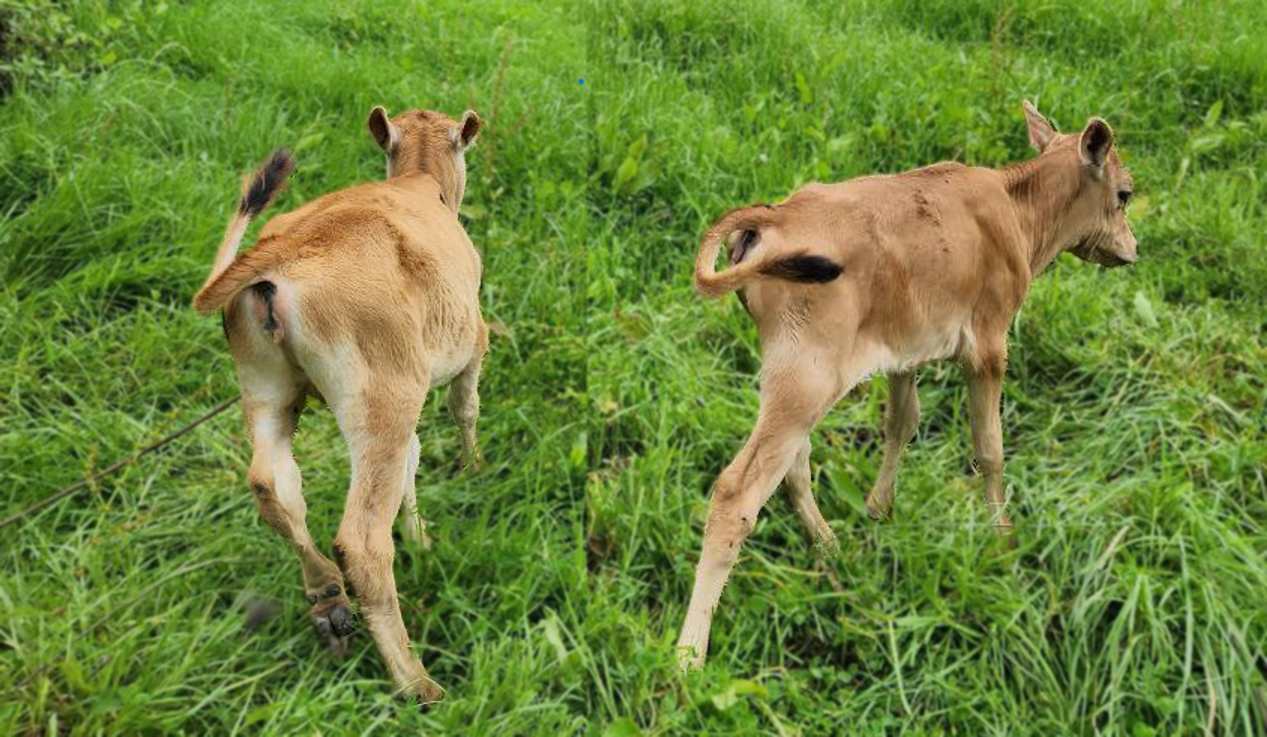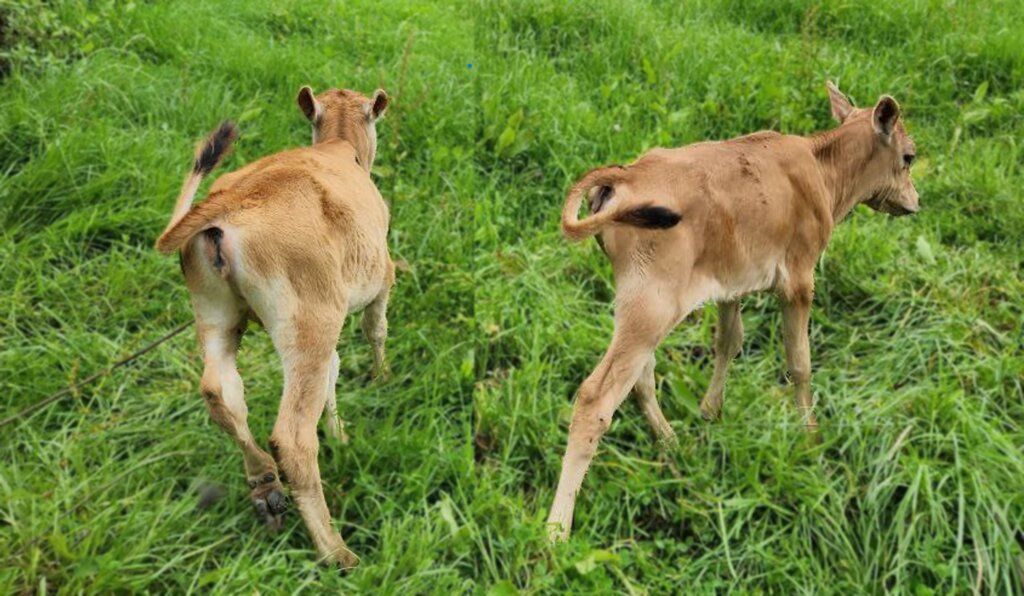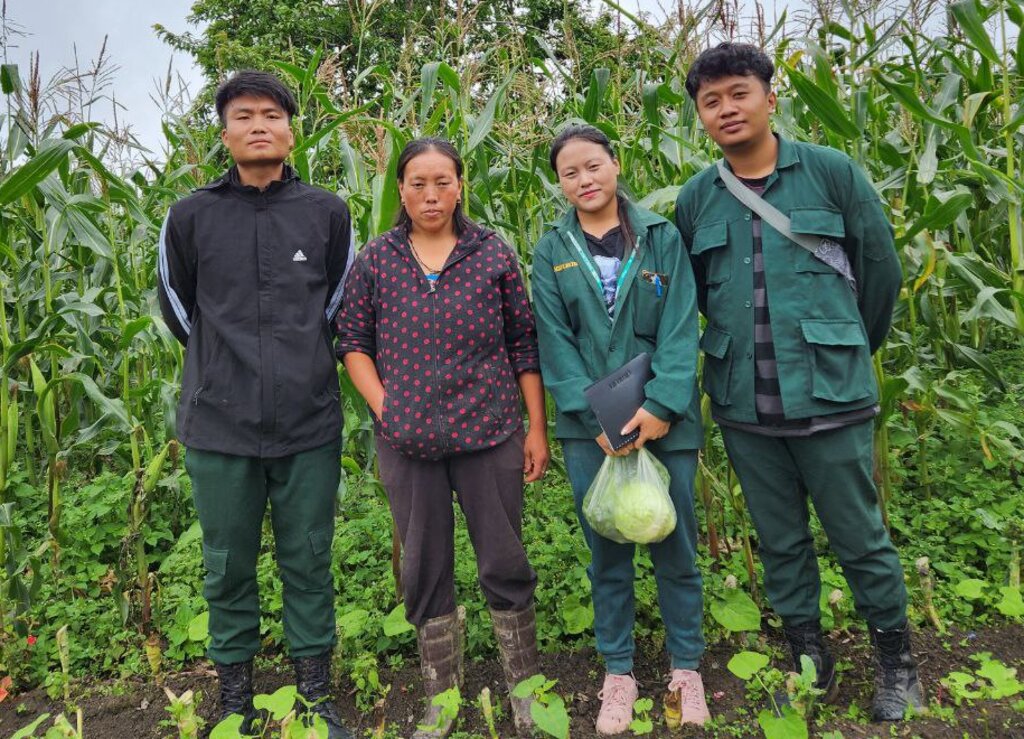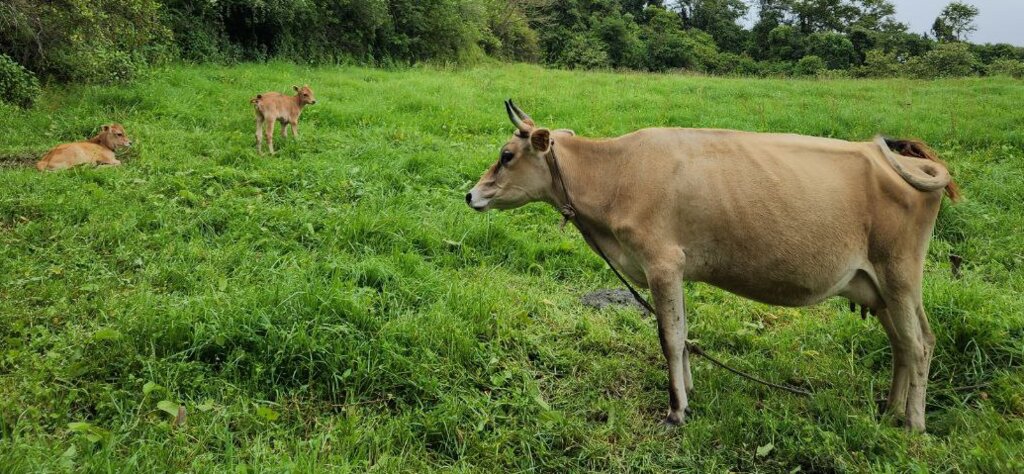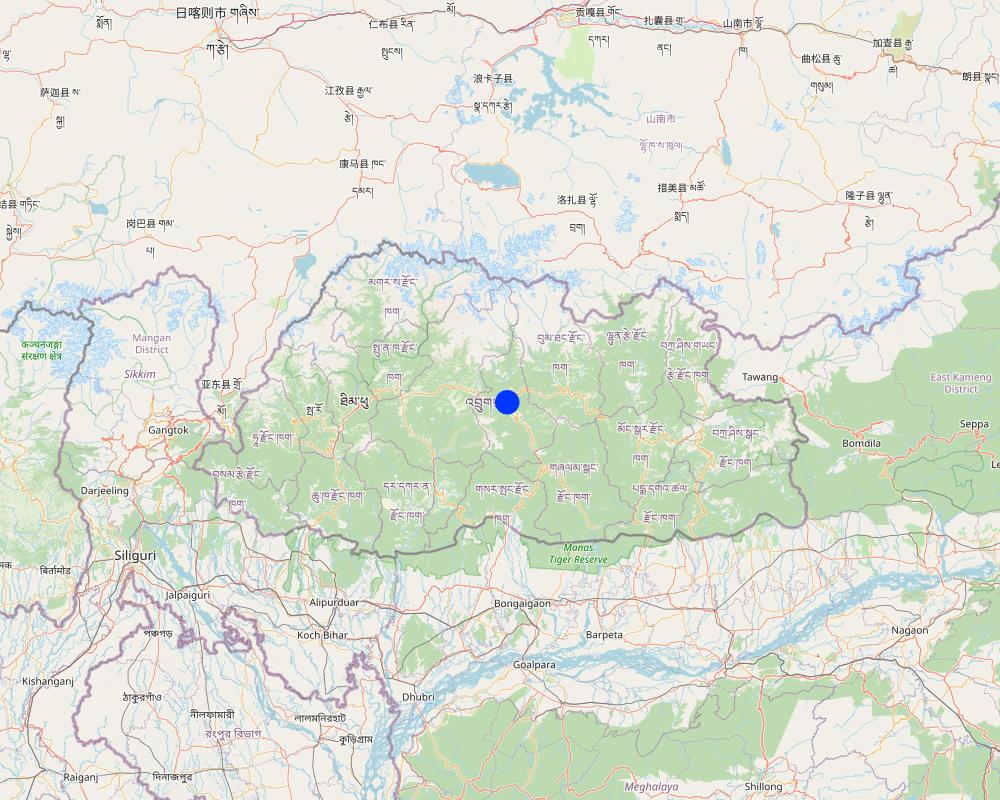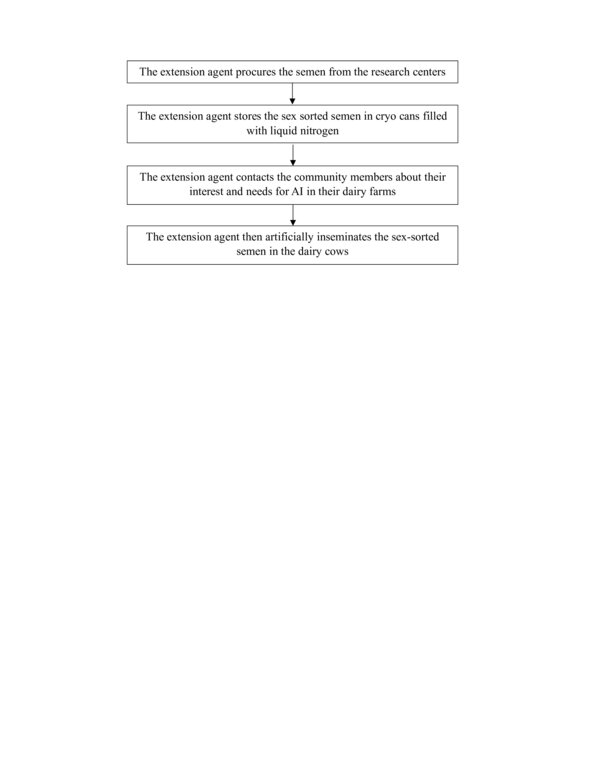Sexed semen technology [ប្រទេសប៊ូតង់]
- ការបង្កើត៖
- បច្ចុប្បន្នភាព
- អ្នកចងក្រង៖ ONGPO LEPCHA
- អ្នកកែសម្រួល៖ Kuenzang Nima
- អ្នកត្រួតពិនិត្យច្រើនទៀត៖ William Critchley, Rima Mekdaschi Studer
Pho mo akha chi yaedpai khab saen gi thrilrig
technologies_6823 - ប្រទេសប៊ូតង់
ពិនិត្យមើលគ្រប់ផ្នែក
ពង្រីកមើលទាំងអស់ បង្រួមទាំងអស់1. ព័ត៌មានទូទៅ
1.2 ព័ត៌មានលម្អិតពីបុគ្គលសំខាន់ៗ និងស្ថាប័នដែលចូលរួមក្នុងការវាយតម្លៃ និងចងក្រងឯកសារនៃបច្ចេកទេស
បុគ្គលសំខាន់ម្នាក់ (ច្រើននាក់)
អ្នកប្រើប្រាស់ដី:
Pem Tenzin
Tshangkha village
ប្រទេសប៊ូតង់
ឈ្មោះគម្រោងដែលបានចងក្រងឯកសារ/ វាយតម្លៃលើបច្ចេកទេស (បើទាក់ទង)
Strengthening national-level institutional and professional capacities of country Parties towards enhanced UNCCD monitoring and reporting – GEF 7 EA Umbrella II (GEF 7 UNCCD Enabling Activities_Umbrella II)ឈ្មោះអង្គភាពមួយ (ច្រើន) ដែលបានចងក្រងឯកសារ/ វាយតម្លៃបច្ចេកទេស (បើទាក់ទង)
National Soil Services Centre, Department of Agriculture, Ministry of Agriculture & Livestock (NSSC) - ប្រទេសប៊ូតង់1.3 លក្ខខណ្ឌទាក់ទងទៅនឹងការប្រើប្រាស់ទិន្នន័យដែលបានចងក្រងតាមរយៈ វ៉ូខេត
អ្នកចងក្រង និង(បុគ្គលសំខាន់ៗ)យល់ព្រមទទួលយកនូវលក្ខខណ្ឌនានាទាក់ទងទៅនឹងការប្រើប្រាស់ទិន្នន័យដែលបានចងក្រងតាមរយៈវ៉ូខេត:
បាទ/ចា៎
1.4 សេចក្តីប្រកាសស្តីពីចីរភាពនៃការពណ៌នាពីបច្ចេកទេស
តើបច្ចេកទេសដែលបានពណ៌នានេះមានបញ្ហាដែលផ្តោតលើការធ្លាក់ចុះគុណភាពដី, បើដូច្នេះវាមិនអាចត្រូវបានប្រកាសថាជាបច្ចេកទេសនៃការគ្រប់គ្រងប្រកបដោយចីរភាពទេ?
ទេ
មតិយោបល់:
The technology is not directly related to land degradation. However, it contribute to sustainable land management practices, as adoption of sexed semen technology pre-determines sex of calf in favor of female progeny (about 90% female and 10% male) that demands good management practices such as development of improved pasture, and improved dairy sheds.
2. ការពណ៌នាពីបច្ចេកទេស SLM
2.1 ការពណ៌នាដោយសង្ខេបពីបច្ចេកទេស
និយមន័យបច្ចេកទេស:
Sexed semen technology produces gender-selected semen for artificially insemination of dairy cows. It ensures a higher proportion of female calves (more than 90%) which will ultimately contribute to the enhancement of milk production in the herd.
2.2 ការពណ៌នាលម្អិតពីបច្ចេកទេស
ការពណ៌នា:
The Artificial Insemination (AI) program, initiated in 1987, has helped AI evolve into a widespread practice for dairy farms across Bhutan, with increasing accessibility due to improved road and transportation networks. The surge in demand for dairy products has positioned AI technology as key in transforming dairy farms from subsistence to market-oriented production systems.
A recent addition to the programme is the use of sexed semen, meaning sorting of semen before artificial insemination. Semen sorting involves categorizing bull semen based on the X and Y chromosomes, thus granting dairy land users control over calf gender. This empowers them to engage in selective breeding, enhancing desired traits and overall quality of dairy production.
Several key activities are integral to this technology:
•Rigorous selection of bulls with desirable traits related to milk production and overall health.
•Collection and preservation of semen from selected bulls.
•Semen sorting technology to separate X and Y chromosome-bearing sperm.
•Artificial insemination of dairy cows by extension agents who use sorted semen.
The benefits are multiple because achieving a higher proportion of heifer calves helps dairy land users to enhance breeding strategies and maintain desired traits within the herd. Economic benefits follow through increased dairy production and improved cattle health.
Land users express satisfaction with the technology and its impact. However, some households report problems with conception rates after AI with sexed semen. Despite these drawbacks, the overall benefits to dairy land users and the industry outweigh the limitations.
2.3 រូបភាពនៃបច្ចេកទេស
2.5 ប្រទេស/តំបន់/ទីតាំងកន្លែង ដែលបច្ចេកទេសត្រូវបានអនុវត្ត និងបានគ្រប់ដណ្តប់ដោយការវាយតម្លៃនេះ
ប្រទេស:
ប្រទេសប៊ូតង់
តំបន់/រដ្ឋ/ខេត្ត:
Trongsa
បញ្ជាក់បន្ថែមពីលក្ខណៈនៃទីតាំង:
Tshangkha, Tangsibji
បញ្ជាក់ពីការសាយភាយនៃបច្ចេកទេស:
- អនុវត្តនៅកន្លែងជាក់លាក់មួយ/ ប្រមូលផ្តុំនៅតំបន់តូចៗ
តើបច្ចេកទេស (មួយ ឬច្រើន) ទាំងនោះស្ថិតនៅក្នុងតំបន់ការពារជាអចិន្ត្រៃយ៍ណាមួយដែរឬទេ?
ទេ
Map
×2.6 កាលបរិច្ឆេទនៃការអនុវត្ត
ប្រសិនបើមិនច្បាស់ឆ្នាំ សូមបញ្ជាក់កាលបរិច្ឆេទដែលប្រហាក់ប្រហែល:
- 10-50 ឆ្នាំ
2.7 ការណែនាំពីបច្ចេកទេស
សូមបញ្ជាក់តើបច្ចេកទេសត្រូវបានណែនាំឱ្យអនុវត្តដោយរបៀបណា:
- តាមរយៈគម្រោង / អន្តរាគមន៍ពីខាងក្រៅ
មតិយោបល់ (ប្រភេទនៃគម្រោង ។ល។):
The technology was introduced by the Department of Livestock to increase the likelihood of birthing female cattle and enhance milk production across the country.
3. ចំណាត់ថ្នាក់នៃបច្ចេកទេស SLM
3.1 គោលបំណងចម្បង (១ ឬច្រើន) នៃបច្ចេកទេសនេះ
- ធ្វើឱ្យប្រសើរឡើងនូវផលិតកម្ម
- កាត់បន្ថយ, បង្ការ, ស្តារឡើងវិញនូវការធ្លាក់ចុះគុណភាពដី
- អភិរក្ស/ធ្វើឱ្យប្រសើរឡើងជីវចម្រុះ
- បង្កើតផលប្រយោជន៍សេដ្ឋកិច្ច
- Improves dairy production
3.2 ប្រភេទដីប្រើប្រាស់មួយប្រភេទ (ច្រើនប្រភេទ) ដែលបានអនុវត្តបច្ចេកទេស
ដីប្រើប្រាស់ចម្រុះនៅលើដីតែមួយ:
ទេ

ដីដាំដំណាំ
- ដំណាំប្រចាំឆ្នាំ
ដំណាំប្រចាំឆ្នាំ - បញ្ជាក់ប្រភេទដំណាំ:
- ធញ្ញជាតិ - ពោត
- ធញ្ញជាតិ - ស្រូវសាលី (និទាឃរដូវ)
- ឬស/ដំណាំមើម - ដំឡូងបារាំង
- បន្លែ - បន្លែយកស្លឹក (សាលាដ ស្ពៃក្តោប ផ្ទី ផ្សេងៗ)
- បន្លែ - បន្លែយកមើម (ការ៉ុត ខ្ទឹមបារាំង ឆៃថាវម្យ៉ាង ផ្សេងៗ)
ចំនួនសារដែលដាំដំណាំក្នុងមួយឆ្នាំ:
- 1
តើជាការអនុវត្តន៍ដំណាំចន្លោះ?
ទេ
តើជាការអនុវត្តន៍ដំណាំវិលជុំ?
បាទ/ចា៎
បើបាទ/ច៎ា សូមបញ្ជាក់:
The crop rotation is normally done with the crops listed above, after the growing season of each crops.
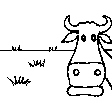
ដីសម្រាប់ចិញ្ចឹមសត្វ
ដីវាលស្មៅតូចៗ/ ផលិតកម្មចំណី:
- កាត់ និងជញ្ជូន/ គ្មានវាលស្មៅសម្រាប់ចិញ្ចឹមសត្វ
- បង្កើនវាលស្មៅ
ប្រភេទសត្វ:
- សត្វពាហនៈ - សត្វចិញ្ចឹមយកទឹកដោះ
មតិយោបល់:
The land is where the manure of the dairy cattles are applied on.
3.3 បន្ទាប់ពីអនុវត្តបច្ចេកទេស តើដីប្រើប្រាស់មានការប្រែប្រួលដែររឺទេ?
បន្ទាប់ពីអនុវត្តបច្ចេកទេស តើដីប្រើប្រាស់មានការប្រែប្រួលដែររឺទេ?
- ទេ (បន្តទៅសំណួរ 3.4)
3.4 ការផ្គត់ផ្គង់ទឹក
ការផ្គត់ផ្គង់ទឹកនៅកន្លែងអនុវត្តបច្ចេកទេស:
- ទឹកភ្លៀង និងប្រព័ន្ធស្រោចស្រព
មតិយោបល់:
The irrigation is mostly rainfed; however, the availability of water in the community is not an issue.
3.5 ក្រុម SLM ដែលបច្ចេកទេសស្ថិតនៅក្នុង
- ការគ្រប់គ្រងដោយរួមបញ្ចូលការដាំដំណាំ និងការចិញ្ចឹមសត្វ
- ធ្វើឱ្យប្រសើរឡើងនូវការបង្កាត់ពូជរុក្ខជាតិ/ សត្វ
3.6 វិធានការ SLM ដែលបញ្ចូលនូវបច្ចេកទេស
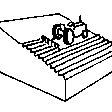
វិធានការក្សេត្រសាស្ត្រ
- A1: ដំណាំ/គម្របដី
- A2: សារធាតុសរីរាង្គ/ជីជាតិដី
3.7 កំណត់ប្រភេទនៃការធ្លាក់ចុះគុណភាពដីសំខាន់ៗដែលបច្ចេកទេសនេះបានដោះស្រាយ
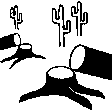
ការធ្លាក់ចុះជីវសាស្ត្រនៃដី
- Bc: ការថយចុះនូវគម្របរុក្ខជាតិ
- Bl: ការបាត់បង់មីក្រូ និងម៉ាក្រូសរីរាង្គរបស់ដី

ផ្សេងៗ
សូមបញ្ជាក់:
There is very minimal land degradation.
មតិយោបល់:
The technology was implemented to address dairy production however, it also contributed to reduced land degradation because many land users have opted for improved dairy cattle by replacing local breeds which were numerous and unproductive.
3.8 ការពារ កាត់បន្ថយ ឬស្តារឡើងវិញនៃការធ្លាក់ចុះគុណភាពដី
បញ្ជាក់ពីគោលដៅរបស់បច្ចេកទេស ដែលផ្តោតទៅការធ្លាក់ចុះគុណភាពដី:
- ដែលមិនអាចអនុវត្តបាន
មតិយោបល់:
This technology is aimed to improve genetic of cattle breed to enhanced dairy production and reduce unproductive cattle population. However, the technology has indirect benefits on sustainable land management through the application of manures, improved housing and pasture development
4. បច្ចេកទេសជាក់លាក់ សកម្មភាពអនុវត្ត ធាតុចូល និងថ្លៃដើម
4.1 គំនូសបច្ចេកទេសនៃបច្ចេកទេសនេះ
លក្ខណៈពិសេសនៃបច្ចេកទេស (ទាក់ទងនឺងគំនូរបច្ចេកទេស):
Since sexed semen technology was not directly established in the community members, the product of the technology was used in the field through AI. Therefore, a flow chart of how the technology is implemented in the field was not created
ឈ្មោះអ្នកនិពន្ធ:
Palden Wangchuk Dorji
កាលបរិច្ឆេទ:
07/07/2023
4.2 ព័ត៌មានទូទៅដែលពាក់ព័ន្ធនឹងការគណនាធាតុចូល និងថ្លៃដើម
កំណត់របៀបនៃការគណនាថ្លៃដើម និងធាតុចូល:
- ក្នុងឯកតាបច្ចេកទេស
បញ្ជាក់ឯកតា:
Number
បញ្ជាក់ពីទំហំនៃឯកតា (បើពាក់ព័ន្ធ):
AI straw
ផ្សេងៗ/ រូបិយប័ណ្ណជាតិ (បញ្ជាក់):
Ngultrum
បើពាក់ព័ន្ធសូមកំណត់អត្រាប្តូរប្រាក់ពីដុល្លាទៅរូបិយប័ណ្ណតំបន់ (ឧ. 1 ដុល្លារ = 79.9 រៀលនៃរូបិយប័ណ្ណប្រេស៊ីល) ៖ 1 ដុល្លារ =:
79,62
កំណត់ថ្លៃឈ្នួលជាមធ្យមនៃការជួលកម្លាំងពលកម្មក្នុងមួយថ្ងៃ:
600
4.3 សកម្មភាពបង្កើត
| សកម្មភាព | រយៈពេល (រដូវកាល) | |
|---|---|---|
| 1. | Procurement of sexed semen | Based on indent or the annual requirement at National level |
| 2. | Storage of sexed semen | After procurement until distributed to dzongkhags at Central level |
| 3. | Transportation and Distribution of sexed semen | As per schedule, every 45 days |
| 4. | Storage of semen | semen bank at Veterinary Hospital and AI centre on regular basis |
| 5. | Render Artificial insemination services to farmers by AI technician | Based on request of farmers reporting on animal showing heat signs |
| 6. | Follow up on AI services (monitoring) | 18-22 days, repeat case, monthly report, ad hoc through phone call |
4.4 ថ្លៃដើម និងធាតុចូលដែលត្រូវការសម្រាប់ការបង្កើតបច្ចេកទេស
| បញ្ជាក់ពីធាតុចូល | ឯកតា | បរិមាណ | ថ្លៃដើមក្នុងមួយឯកតា | ថ្លៃធាតុចូលសរុប | % នៃថ្លៃដើមដែលចំណាយដោយអ្នកប្រើប្រាស់ដី | |
|---|---|---|---|---|---|---|
| កម្លាំងពលកម្ម | Community AI Technician | person/Day | 2,0 | 1000,0 | 2000,0 | |
| សម្ភារៈ | Sexed semen AI | per straw | 1,0 | 1500,0 | 1500,0 | |
| សម្ភារៈ | golves | No | 1,0 | 5,0 | 5,0 | |
| សម្ភារៈ | AI sheath | No | 1,0 | 16,0 | 16,0 | |
| សម្ភារៈ | LN2 | litre | 300,0 | 35,0 | 10500,0 | |
| សម្ភារៈ | LN2 container (55 litre) | No | 2,0 | 25050,0 | 50100,0 | |
| សម្ភារៈ | Portable AI container (5 litres) | No | 1,0 | 11200,0 | 11200,0 | |
| សម្ភារៈ | Water boiler (3 litres) | No | 1,0 | 2800,0 | 2800,0 | |
| សម្ភារៈ | Jug | No | 1,0 | 30,0 | 30,0 | |
| សម្ភារៈដាំដុះ | Funnel | No | 1,0 | 150,0 | 150,0 | |
| សម្ភារៈដាំដុះ | Towel | No | 1,0 | 100,0 | 100,0 | |
| សម្ភារៈដាំដុះ | Flexible Dip stick | No | 1,0 | 2500,0 | 2500,0 | |
| សម្ភារៈសាងសង់ | AI crates | No | 1,0 | 45000,0 | 45000,0 | |
| ផ្សេងៗ | Travel | km | 15,0 | 30,0 | 450,0 | |
| ថ្លៃដើមសរុបក្នុងការបង្កើតបច្ចេកទេស | 126351,0 | |||||
| ថ្លៃដើមសរុបក្នុងការបង្កើតបច្ចេកទេសគិតជាដុល្លារ | 1586,93 | |||||
ប្រសិនបើអ្នកប្រើប្រាស់ដីមិនមានថ្លៃដើម 100% សូមបញ្ជាក់ថានរណាដែលចំណាយថ្លៃដើមដែលនៅសល់:
The cost is normally covered by the Royal Government of Bhutan
មតិយោបល់:
The cost is based on conducting AI for a single dairy cow
4.5 សកម្មភាពថែទាំ
| សកម្មភាព | ពេលវេលា/ ភាពញឹកញាប់ | |
|---|---|---|
| 1. | Storage of the sex sorted semen | When the semen is procured by the extension agent and before conducting AI |
4.6 កំណត់ថ្លៃដើមសម្រាប់ការថែទាំ/ សកម្មភាពរបស់បច្ចេកទេស (ក្នុងរយៈពេលមួយឆ្នាំ)
ប្រសិនបើអ្នកប្រើប្រាស់ដីមិនមានថ្លៃដើម 100% សូមបញ្ជាក់ថានរណាដែលចំណាយថ្លៃដើមដែលនៅសល់:
The cost is mostly covered by the Royal Government of Bhutan
មតិយោបល់:
The only maintenance regarding this technology is the storage of the AI straw filled with sex-sorted semen in cryocan filled with liquid nitrogen. The cost is also based on a single AI straw.
4.7 កត្តាសំខាន់បំផុតដែលមានឥទ្ធិពលដល់ការចំណាយ
ពណ៌នាពីកត្តាប៉ះពាល់ចម្បងៗទៅលើថ្លៃដើម:
Material cost, heat detection, distance
5. លក្ខណៈបរិស្ថានធម្មជាតិ និងមនុស្ស
5.1 អាកាសធាតុ
បរិមាណទឹកភ្លៀងប្រចាំឆ្នាំ
- < 250 មម
- 251-500 មម
- 501-750 មម
- 751-1,000 មម
- 1,001-1,500 មម
- 1,501-2,000 មម
- 2,001-3,000 មម
- 3,001-4,000 មម
- > 4,000 មម
កំណត់បរិមាណទឹកភ្លៀង (បើដឹង) ជា មីលីម៉ែត្រ:
100,00
លក្ខណៈពិសេស/ មតិយោបល់លើរដូវភ្លៀង:
The data was used from the National Center for Hydrology and Meteorology from the nearest weather station.
បញ្ជាក់ឈ្មោះឯកសារយោងនៃស្ថានីយឧតុនិយម:
https://www.nchm.gov.bt/home/pageMenu/906
តំបន់កសិអាកាសធាតុ
- មានភ្លៀងមធ្យម
Warm Temperate zone
5.2 សណ្ឋានដី
ជម្រាលជាមធ្យម:
- រាបស្មើ (0-2%)
- ជម្រាលតិចតួច (3-5%)
- មធ្យម (6-10%)
- ជម្រាលខ្ពស់បន្តិច (11-15%)
- ទីទួល (16-30%)
- ទីទួលចោត (31-60%)
- ទីទួលចោតខ្លាំង (>60%)
ទម្រង់ដី:
- ខ្ពង់រាប
- កំពូលភ្នំ
- ជម្រាលភ្នំ
- ជម្រាលទួល
- ជម្រាលជើងភ្នំ
- បាតជ្រលងភ្នំ
តំបន់តាមរយៈកម្ពស់ :
- 0-100 ម
- 101-500 ម
- 501-1,000 ម
- 1,001-1,500 ម
- 1,501-2,000 ម
- 2,001-2,500 ម
- 2,501-3,000 ម
- 3,001-4,000 ម
- > 4,000 ម
5.3 ដី
ជម្រៅដីជាមធ្យម:
- រាក់ខ្លាំង (0-20 សម)
- រាក់ (21-50 សម)
- មធ្យម (51-80 សម)
- ជ្រៅ (81-120 សម)
- ជ្រៅខ្លាំង (> 120 សម)
វាយនភាពដី (ស្រទាប់លើ):
- គ្រើម/ មានពន្លឺ (ខ្សាច់)
សារធាតុសរីរាង្គនៅស្រទាប់ដីខាងលើ:
- ខ្ពស់ (>3%)
5.4 ទឹកដែលអាចទាញមកប្រើប្រាស់បាន និងគុណភាពទឹក
ទឹកលើដីដែលអាចទាញយកប្រើប្រាស់បាន:
ល្អ
គុណភាពទឹក (មិនបានធ្វើប្រត្តិកម្ម):
ទឹកពិសារដែលមានគុណភាពល្អ
គុណភាពទឹក គឺផ្តោតទៅលើ៖:
ទឹកលើផ្ទៃដី
តើមានបញ្ហាភាពទឹកប្រៃហូរចូលមកដែរឬទេ?
ទេ
តើទឹកជំនន់កំពុងកើតមាននៅតំបន់នេះដែររឺទេ?
ទេ
មតិយោបល់ និងលក្ខណៈពិសេសផ្សេងៗទៀតលើគុណភាព និងបរិមាណទឹក :
In accordance with the land users, the quantity of water is more than enough and the quality of the water is also very good compared to the past.
5.5 ជីវៈចម្រុះ
ភាពសម្បូរបែបនៃប្រភេទ:
- ខ្ពស់
ភាពសម្បូរបែបនៃទីជម្រក:
- ខ្ពស់
មតិយោបល់ និងលក្ខណៈពិសេសផ្សេងទៀតលើជីវចម្រុះ:
Since the land user practices crop rotation and grows different types of crops throughout the year, the species diversity is high.
Less forest grazing because land users have replaced unproductive local breeds with improved breeds like Jersey, Holstein Friesian, or cross breeds.
5.6 លក្ខណៈនៃអ្នកប្រើប្រាស់ដីដែលអនុវត្តបច្ចេកទេស
នៅមួយកន្លែង ឬពនេចរ :
- នៅមួយកន្លែង
ទីផ្សារនៃប្រព័ន្ធផលិតកម្ម:
- សម្រាប់ហូបក្នុងគ្រួសារ (ផ្គត់ផ្គង់ខ្លួនឯង)
ចំណូលក្រៅកសិកម្ម:
- តិចជាង 10% នៃចំណូល
កម្រិតជីវភាព:
- មធ្យម
ឯកជន ឬក្រុម:
- ធ្វើខ្លួនឯង/ គ្រួសារ
កម្រិតប្រើប្រាស់គ្រឿងយន្ត:
- គ្រឿងយន្ត/ ម៉ាស៊ីន
យេនឌ័រ:
- ស្ត្រី
អាយុរបស់អ្នកប្រើប្រាស់ដី:
- វ័យកណ្តាល
5.7 ទំហំផ្ទៃដីជាមធ្យមនៃដីប្រើប្រាស់ដោយអ្នកប្រើប្រាស់ដី ក្នុងការអនុវត្តបច្ចេកទេស
- < 0.5 ហិកតា
- 0.5-1 ហិកតា
- 1-2 ហិកតា
- 2-5 ហិកតា
- 5-15 ហិកតា
- 15-50 ហិកតា
- 50-100 ហិកតា
- 100-500 ហិកតា
- 500-1,000 ហិកតា
- 1,000-10,000 ហិកតា
- > 10,000 ហិកតា
តើផ្ទៃដីនេះចាត់ទុកជាទំហំកម្រិតណាដែរ ខ្នាតតូច មធ្យម ឬខ្នាតធំ (ធៀបនឹងបរិបទតំបន់)?
- ខ្នាតមធ្យម
មតិយោបល់:
Total land owned: 5 acres
Total cultivated land: 1 acre
Remaining lands were either fallow and some of areas of the land were used as pasture land for their cattle to graze.
5.8 ភាពជាម្ចាស់ដី កម្មសិទ្ធប្រើប្រាស់ដី និងកម្មសិទ្ធប្រើប្រាស់ទឹក
ភាពជាម្ចាស់ដី:
- ឯកជន មានកម្មសិទ្ធ
កម្មសិទ្ធិប្រើប្រាស់ដី:
- ឯកជន
កម្មសិទ្ធប្រើប្រាស់ទឹក:
- អាស្រ័យផលសេរី (មិនមានការកំណត់)
តើកម្មសិទ្ធប្រើប្រាស់ដី គឺផ្អែកលើប្រព័ន្ធច្បាប់បែបបុរាណ?
បាទ/ចា៎
សូមបញ្ជាក់:
The traditional legal system in our country is as per the land act and rules and regulations which dictate the land use in the country.
5.9 ការប្រើប្រាស់សេវាកម្ម និងហេដ្ឋារចនាសម្ព័ន្ធ
សុខភាព:
- មិនល្អ
- មធ្យម
- ល្អ
ការអប់រំ:
- មិនល្អ
- មធ្យម
- ល្អ
ជំនួយបច្ចេកទេស:
- មិនល្អ
- មធ្យម
- ល្អ
ការងារ (ឧ. ការងារក្រៅកសិដ្ឋាន):
- មិនល្អ
- មធ្យម
- ល្អ
ទីផ្សារ:
- មិនល្អ
- មធ្យម
- ល្អ
ថាមពល:
- មិនល្អ
- មធ្យម
- ល្អ
ផ្លូវ និងការដឹកជញ្ជូន:
- មិនល្អ
- មធ្យម
- ល្អ
ទឹកផឹក និងអនាម័យ:
- មិនល្អ
- មធ្យម
- ល្អ
សេវាកម្មហិរញ្ញវត្ថុ:
- មិនល្អ
- មធ្យម
- ល្អ
6. ផលប៉ះពាល់ និងការសន្និដ្ឋាន
6.1 ផលប៉ះពាល់ក្នុងបរិវេណអនុវត្តបច្ចេកទេសដែលកើតមាន
ផលប៉ះពាល់លើសេដ្ឋកិច្ចសង្គម
ផលិតផល
ផលិតកម្មចំណីសត្វ
គុណភាពមុន SLM:
The cattle were normally grazed in the forest, so no fodder were produced.
គុណភាពក្រោយ SLM:
Some of the land that were left fallowed were used for fodder production.
គុណភាពចំណីសត្វ
គុណភាពមុន SLM:
Local cattles can feed on wild fodder grasses and trees
គុណភាពក្រោយ SLM:
Improved cattles require quality fodder so they started growing improved fodders species like Super Napier grass, Napier grass, etc.
ផលិតកម្មសត្វ
គុណភាពមុន SLM:
5 liters of milk were produced from each dairy cow every day
គុណភាពក្រោយ SLM:
15 liters of milk are produced by each dairy cow everyday
មតិយោបល់/ ការបញ្ជាក់:
The quantification was based on the amount of milk produced.
ផ្ទៃដីផលិតកម្ម
គុណភាពមុន SLM:
5 acres of cultivated land
គុណភាពក្រោយ SLM:
1 acre of cultivated land
មតិយោបល់/ ការបញ្ជាក់:
The land user now focuses mostly on dairy production and has converted some of the lands into pasture for grazing purposes while the rest has been left fallow. This is due to the absence of labour in the household.
ចំណូល និងថ្លៃដើម
ការចំណាយលើធាតុចូលកសិកម្ម
មតិយោបល់/ ការបញ្ជាក់:
This is due to the decrease in the cultivated land.
ចំណូលក្នុងកសិដ្ឋាន
មតិយោបល់/ ការបញ្ជាក់:
Due to the increase in dairy production, the land user is greatly benefited from it.
បន្ទុកការងារ
មតិយោបល់/ ការបញ្ជាក់:
Since the land user focuses primarily on dairy, the amount of workload has relatively increased compared to the past, where she would only focus on agriculture, only.
ផលប៉ះពាល់ទៅលើវប្បធម៌សង្គម
សន្តិសុខស្បៀង/ ភាពគ្រប់គ្រាន់ខ្លួនឯង
គុណភាពមុន SLM:
Mostly consumed food they produced in their household.
គុណភាពក្រោយ SLM:
Diverse food products are available, together with dairy products.
ផលប៉ះពាល់ទៅលើអេកូឡូស៊ី
ជីវចម្រុះ៖ ដំណាំ, សត្វ
ភាពសម្បូរបែបនៃរុក្ខជាតិ
គុណភាពមុន SLM:
Maize, wheat and potatoes were the only primary crops grown.
គុណភាពក្រោយ SLM:
Maize, wheat, potatoes and several other cole crops and legumes are now cultivated by the land users.
6.2 ផលប៉ះពាល់ក្រៅបរិវេណអនុវត្តបច្ចេកទេសដែលកើតមាន
ផលប៉ះពាល់នៃឧស្ម័នផ្ទះកញ្ចក់
គុណភាពមុន SLM:
more than 30 cattles including dairy cows and bulls
គុណភាពក្រោយ SLM:
around 15 dairy cows
មតិយោបល់/ ការបញ្ជាក់:
There is decrease in the number of cattle and they are mostly female.
6.3 ភាពប្រឈម និងភាពរួសនៃបច្ចេកទេសទៅនឹងការប្រែប្រួលអាកាសធាតុ និងគ្រោះអាកាសធាតុ/ គ្រោះមហន្តរាយ (ដែលដឹងដោយអ្នកប្រើប្រាស់ដី)
ការប្រែប្រួលអាកាសធាតុ
ការប្រែប្រួលអាកាសធាតុ
| រដូវកាល | កើនឡើង ឬថយចុះ | លក្ខណៈឆ្លើយតបនៃបច្ចេកទេសទៅនឹងការប្រែប្រួលអាកាសធាតុ | |
|---|---|---|---|
| សីតុណ្ហភាពប្រចាំឆ្នាំ | កើនឡើង | ល្អ | |
| បរិមាណទឹកភ្លៀងប្រចាំឆ្នាំ | ថយចុះ | ល្អ |
គ្រោះអាកាសធាតុ (មហន្តរាយ)
គ្រោះមហន្តរាយធម្មជាតិ
| លក្ខណៈឆ្លើយតបនៃបច្ចេកទេសទៅនឹងការប្រែប្រួលអាកាសធាតុ | |
|---|---|
| ព្យុះភ្លៀងតាមតំបន់ | ល្អ |
| ព្យុះរន្ទះតាមតំបន់ | ល្អ |
| ព្យុះទឹកកកតាមតំបន់ | ល្អ |
គ្រោះមហន្តរាយជីវៈសាស្ត្រ
| លក្ខណៈឆ្លើយតបនៃបច្ចេកទេសទៅនឹងការប្រែប្រួលអាកាសធាតុ | |
|---|---|
| ការរាតត្បាតនៃជំងឺ | មធ្យម |
| ការមានបញ្ហាសត្វល្អិត/ដង្កូវ | មធ្យម |
មតិយោបល់:
This rating is based on the cattle produced by the technology since the technology itself is not impacted greatly by the change in climate and weather.
6.4 ការវិភាគថ្លៃដើម និងអត្ថប្រយោជន៍
តើផលចំណេញ និងថ្លៃដើមត្រូវបានប្រៀបធៀបគ្នាយ៉ាងដូចម្តេច (ទស្សនៈរបស់អ្នកប្រើប្រាស់ដី)?
រយៈពេលខ្លី:
វិជ្ជមាន
រយៈពេលវែង:
វិជ្ជមាន
មតិយោបល់:
The benefits of the technology are very high. The recurrent cost of AI is very low as it is provided for free by the Royal Government of Bhutan.
The land users also get the desired sex of the cattle they want (female cattle).
The return they get from improved cattle is very high(high milk yield).
6.5 ការទទួលយកបច្ចេកទេស
- > 50%
បើអាច សូមបញ្ជាក់ពីបរិមាណ (ចំនួនគ្រួសារ និង/ ឬតំបន់គ្របដណ្តប់):
28 households
ក្នុងចំណោមគ្រួសារទាំងអស់ដែលបានអនុវត្តបច្ចេកទេស តើមានប៉ុន្មានគ្រួសារដែលចង់ធ្វើដោយខ្លួនឯង ដោយមិនទទួលបានសម្ភារៈលើកទឹកចិត្ត/ប្រាក់ឧបត្ថម្ភ?:
- 0-10%
មតិយោបល់:
The technology can only be implemented by the extension agent since the sexed semen is only procured by them and artificial insemination is also done by the extension agent.
6.6 ការបន្សុំា
តើថ្មីៗនេះ បច្ចេកទេសនេះត្រូវបានកែតម្រូវដើម្បីបន្ស៊ាំទៅនឹងស្ថានភាពប្រែប្រួលដែរឬទេ?
ទេ
6.7 ភាពខ្លាំង/ គុណសម្បត្តិ/ ឱកាសនៃបច្ចេកទេស
| ភាពខ្លាំង/ គុណសម្បត្តិ/ ឱកាសនៅកន្លែងរបស់អ្នកប្រើប្រាស់ដី |
|---|
| Produces desirable traits of offspring |
| Improved breed quality |
| Enhances dairy production |
| Produces female cattle |
| Manure from the cattle is used for revitalising the farmland. |
| ភាពខ្លាំង/ គុណសម្បត្តិ/ ឱកាស ទស្សនៈរបស់បុគ្គលសំខាន់ៗ |
|---|
| It helps improve the land users livelihood by benefiting them economically. |
| Sexed semen technology produces desired sex cattle which also reduces the recurrent cost of doing AI again and again to get desired sex cattle. |
| Sexed semen technology can ultimately reduce number of unproductive cow which can reduce land degradation and reduce greenhouse gas emmission. |
6.8 ភាពខ្សោយ/ គុណវិបត្តិ/ ហានិភ័យនៃបច្ចេកទេស និងវិធីសាស្ត្រដោះស្រាយ
| ភាពខ្សោយ/ គុណវិបត្តិ/ ហានិភ័យ ទស្សនៈរបស់អ្នកប្រើប្រាស់ដី | តើបច្ចេកទេសទាំងនោះបានដោះស្រាយបញ្ហាដូចម្តេច? |
|---|---|
| Sometimes the cattle do not conceive even after insemination. | The possibility of a cow not conceiving after an AI is very low, but it is recommended that the land user consult with the livestock agent or conduct AI again. |
| ភាពខ្សោយ/ គុណវិបត្តិ/ ហានិភ័យ ទស្សនៈរបស់អ្នកចងក្រងឬបុគ្គលសំខាន់ៗ | តើបច្ចេកទេសទាំងនោះបានដោះស្រាយបញ្ហាដូចម្តេច? |
|---|---|
| Sexed semen technology reduces the male population, getting quality breeding bull will be difficult in future. | Allow the dairy cow to mate naturally once in their lifetime |
| Semen produced from the technology may become ineffective during the sorting procedure. | Follow appropriate procedures and double-check equipment. |
7. ឯកសារយោង និងវេបសាយ
7.1 វិធីសាស្ត្រ/ ប្រភពនៃព័ត៌មាន
- តាមការចុះទីវាល ការស្រាវជ្រាវនៅទីវាល
One household
- ការសម្ភាសន៍ជាមួយអ្នកប្រើប្រាស់ដី
One individual
តើពេលណាដែលទិន្នន័យបានចងក្រង (នៅទីវាល)?
07/07/2023
7.2 ឯកសារយោងដែលបានចេញផ្សាយ
ចំណងជើង អ្នកនិពន្ធ ឆ្នាំ ISBN:
Guar et al. (2021). Sex Sorted Semen -Methods, Constraints and Future Perspective. Veterinary Research International, 8, 368-375.
មានប្រភពមកពីណា? ថ្លៃដើមប៉ុន្មាន?
https://www.researchgate.net/publication/354631046_Sex_Sorted_Semen_-Methods_Constraints_and_Future_Perspective
ចំណងជើង អ្នកនិពន្ធ ឆ្នាំ ISBN:
Singh et al. (2019). Sexed semen technology in cattle: A revolutionary technique in Indian dairy industry. 9, 946-950
មានប្រភពមកពីណា? ថ្លៃដើមប៉ុន្មាន?
https://www.researchgate.net/publication/337919029_Sexed_semen_technology_in_cattle_A_revolutionary_technique_in_Indian_dairy_industry/citation/download
ចំណងជើង អ្នកនិពន្ធ ឆ្នាំ ISBN:
Department of Animal Husbandry and Dauty. (2020). Accelerated Breed Improvement Programme -Using sex sorted semen for getting assured pregnancy. Govt. India
មានប្រភពមកពីណា? ថ្លៃដើមប៉ុន្មាន?
https://dahd.nic.in/sites/default/filess/Guidelines%20for%20sex%20sorted%20semen%20v3.pdf
ចំណងជើង អ្នកនិពន្ធ ឆ្នាំ ISBN:
Butler et al. (2015). The importance of recording in establishing the value of sexed semen to dairy farmers. The Irish Agriculture and Food Development Authority
មានប្រភពមកពីណា? ថ្លៃដើមប៉ុន្មាន?
https://www.icar.org/wp-content/uploads/2015/09/A2-Butler_PPT.pdf
ចំណងជើង អ្នកនិពន្ធ ឆ្នាំ ISBN:
Kumar et al. (2017). Sexed Semen Technology in Cattle. Indian Journal of Animal Health, 56(2), 157-168.
មានប្រភពមកពីណា? ថ្លៃដើមប៉ុន្មាន?
http://ijah.in/upload/snippet/145_53.pdf
ចំណងជើង អ្នកនិពន្ធ ឆ្នាំ ISBN:
Tshering, L. & Tamang, N. B. (2018). Decades of Artificial Insemination: Bittersweet Experiences on Cattle Breeding in Bhutan. Bhutan Journal of Animal Sciences, 2(1), 1-6.
មានប្រភពមកពីណា? ថ្លៃដើមប៉ុន្មាន?
https://www.researchgate.net/publication/353317476_DECADES_OF_ARTIFICIAL_INSEMINATION_BITTERSWEET_EXPERIENCES_ON_CATTLE_BREEDING_IN_BHUTAN
7.3 ការភ្ជាប់ទៅកាន់ព័ត៌មានពាក់ព័ន្ធលើប្រព័ន្ធអនឡាញ
ចំណងជើង/ ពណ៌នា:
TASHI: The First Woman Community AI Technician in the East. /Dzongkha language/
វេបសាយ:
https://www.youtube.com/watch?v=gk_iXm94ZQQ
ចំណងជើង/ ពណ៌នា:
Koufouku International Limited - A Link in the Dairy Value Chain in the East
វេបសាយ:
https://www.youtube.com/watch?v=JLB_3fdz3ag
ការតភ្ជាប់ និងម៉ូឌុល
ពង្រីកមើលទាំងអស់ បង្រួមទាំងអស់ការតភ្ជាប់
គ្មានការតភ្ជាប់
ម៉ូឌុល
គ្មានម៉ូឌុល


